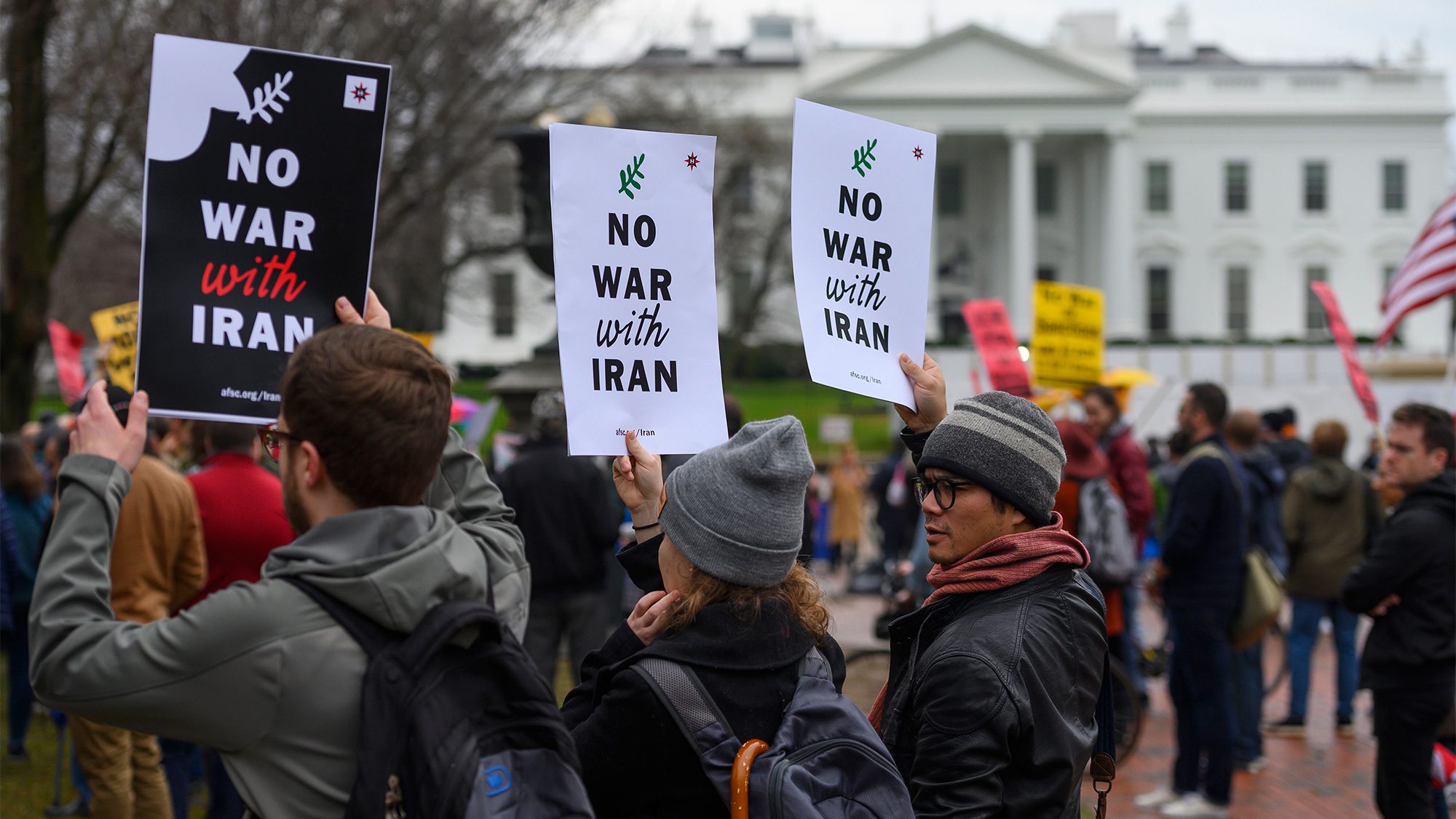
ANDREW CABALLERO-REYNOLDS/AFP via Getty Images
As threats between U.S. and Iranian leaders ratchet up, the danger of an open conflict between the nations has many on edge.
Such a clash would likely have repercussions far beyond loss of life and the geopolitical power balance, even touching the American housing market.
A war would certainly push down mortgage interest rates, and would probably affect home prices and the number of sales, with the extent of the impact depending on the severity and expected duration of the conflict.
“A potential war with Iran would make Americans less likely to buy a home,” says realtor.com® Senior Economist George Ratiu. “It increases uncertainty about the future.”
And uncertainty is pretty much the last thing folks want to feel before they make what could be the biggest financial commitment of their lives.
U.S.-Iran tensions skyrocketed after President Donald Trump ordered a drone strike that killed high-ranking Iranian Gen. Qassem Soleimani on Jan. 3 in Iraq. U.S. officials said the general was planning to attack Americans in the Middle East. Iran has vowed to retaliate.
Mortgage interest rates would likely fall
While the prospect of war is nothing to look forward to, it would likely lead to already low mortgage interest rates falling even further.
“The silver lining is, high uncertainty will keep mortgage rates low,” says Ratiu. Mortgage rates are tied to the 10-year Treasury bond market. “Investors tend to favor bonds [versus stocks] in more uncertain times. Bonds are more stable than stocks when there’s volatility in the economy.”
So when bonds are doing well, mortgage rates drop. That makes buying a home more affordable and means more folks will be able to qualify for a loan. It’ll also likely lead to more folks refinancing their higher-cost mortgages.
How low they’ll go is anyone’s guess. They were 3.72% for a 30-year fixed-rate mortgage as of Jan. 2, according to Freddie Mac. But there’s little doubt they would drop further amid the geopolitical uncertainty, especially with the international nature of investment these days.
Remember Brexit? Two weeks after Britain voted to leave the European Union in June 2016, U.S. mortgage interest rates fell 15 basis points. (A basis point is equivalent to 0.01%.)
“We’re already pretty low,” says Joel Kan, an economist at the Mortgage Bankers Association. “It’s hard to say how far down they’ll go at this point.”
Home sales could flatten—or falter
With more millennials getting ready to settle down and raise a family amid a worsening shortage of housing, economists don’t anticipate any dip in the demand for housing. But some may no longer be able to afford to do so.
If oil prices rise because of a conflict in the Middle East, affecting everything from how much drivers pay at the pump to the cost of goods coming from all over the world, it’s likely to leave less money in the pockets of most folks. And that could make it harder for first-time buyers to save up for a down payment or get the needed cash from friends or family, as well as challenging homeowners who want to trade up to pricier abodes.
A war could also spark an economic slowdown or recession. Companies may be reluctant to spend, and might even make cuts. And if mass layoffs sweep the nation again, or enough potential buyers are worried they will, folks are more likely to save what they can instead of funneling their savings into a home.
But the ultralow interest rates are likely to help many other would-be buyers overlook their qualms.
“Some [buyers] will pull out because of the possibility of a recession,” says Lawrence Yun, chief economist of the National Association of Realtors®. “But some people will jump in because of the low mortgage rates.”
Home prices: Will they shoot up or tumble?
What will happen to home prices is still a mystery. But buyers hoping for a return to the bargain-basement prices of the Great Recession shouldn’t hold their breath.
There are still many more buyers than there are properties for sale. And a war could make that imbalance even worse.
Builders may have trouble securing financing to put up more homes. Or they may worry fewer buyers will materialize to buy their finished abodes, as new homes typically cost more than existing ones. That’s likely to make the current housing shortage even worse.
So will prices rise or fall? Economists aren’t certain. And many are hoping a war will be averted and no one will find out.
Even with high demand, sellers may not be able to get top dollar as buyers may be hesitant to make such a big purchase.
“Sellers would have to expect lower prices and be more flexible,” says realtor.com’s Ratiu.
NAR’s Yun disagrees.
“I don’t think home prices will fall if there’s a war,” says Yun. In fact, “home prices should still be able to squeak out gains.”
The post War With Iran? Here’s What That Could Mean for the U.S. Housing Market appeared first on Real Estate News & Insights | realtor.com®.
via War With Iran? Here’s What That Could Mean for the U.S. Housing Market

No comments:
Post a Comment